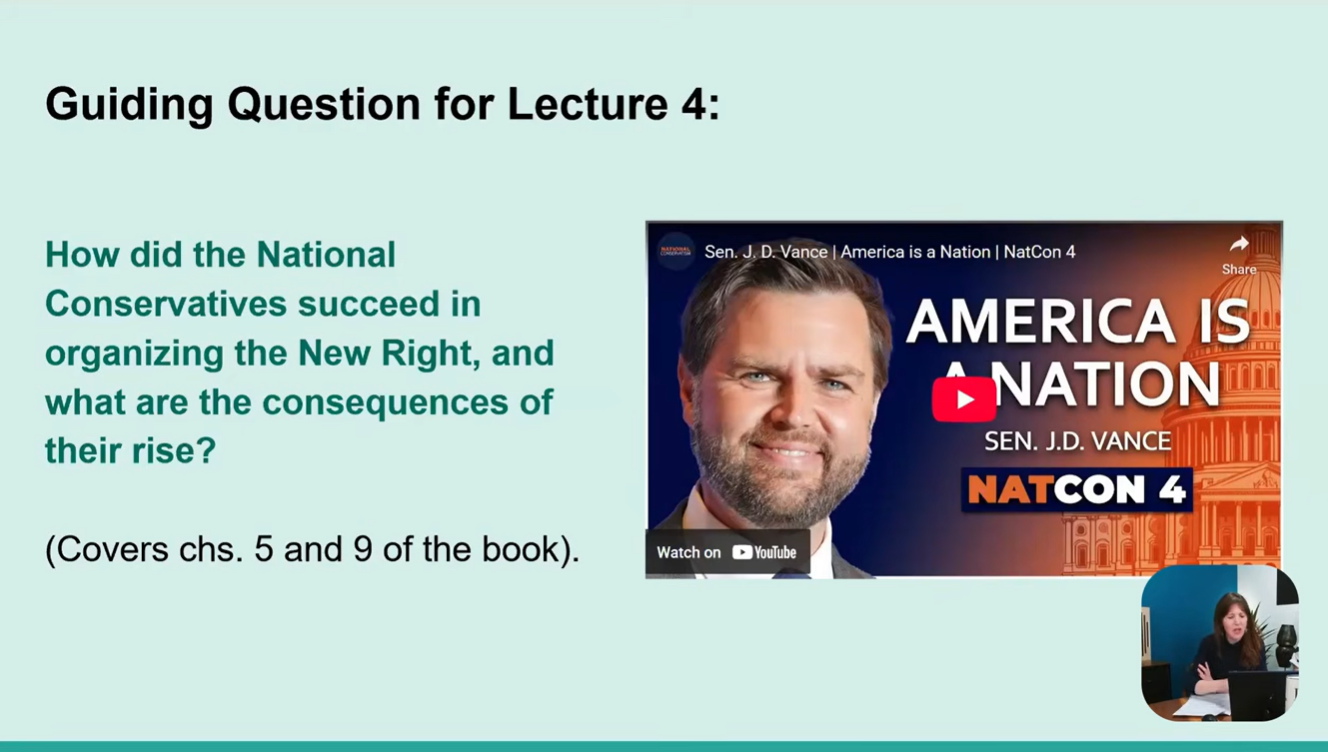The Week that Was: All of Lawfare in One Post
On Thursday evening, Shane Harris of the Wall Street Journal reported that longtime Republican operative Peter W. Smith reached out to several hacker groups, including two Russian groups, in an attempt to locate emails allegedly stolen from Hillary Clinton's private email server.
On Thursday evening, Shane Harris of the Wall Street Journal reported that longtime Republican operative Peter W. Smith reached out to several hacker groups, including two Russian groups, in an attempt to locate emails allegedly stolen from Hillary Clinton's private email server. Smith reportedly presented himself as having contact about the search with now-former National Security Adviser Michael Flynn, then a senior adviser to Trump's campaign. In a follow-up story, Harris and his co-authors wrote that Smith used the names of top Trump officials including Steve Bannon and Kellyanne Conway in a recruitment document for the effort.
In response to the initial story, Benjamin Wittes posted a special edition of the Lawfare Podcast featuring an interview with Harris about the story and its implications for possible Russian collusion:
Then, in a story posted Friday night, cybersecurity expert and Lawfare contributor Matt Tait detailed a series of interactions he had with Smith, who had approached him to recruit him for the project. Tait also discussed the document mentioned in the second Harris story, which includes the names of top Trump officials.
On Monday, the Supreme Court ruled on the Trump administration’s immigration executive order. Writing in an unsigned, per curiam decision, the Court partially lifted the preliminary injunctions that blocked the enforcement of the executive order and granted certiorari in a consolidated version of IRAP v. Trump and Hawaii v. Trump. The Court plans to hear the case in October. Jane Chong provided a guide to understanding the Court’s ruling, and Josh Blackman provided his analysis, following up on his original predictions.
After the Court’s announcement, Peter Margulies wrote that the decision struck a strong balance between the interests of the affected parties and the U.S. government’s need to protect national security. Jack Goldsmith argued that the most important part of the ruling was the Court’s sober analysis. And Adrian Vermeule wrote that the Court’s ruling, along with several other decisions this year, proves that Article II conservatism is thriving.
In the decision, the Court ruled that the government could not block those with a “bona fide” familial, educational, or occupational connection with an American entity from entry under the travel ban, although the precise definition of who could claim a family connection went unspecified. On Thursday, with the ban set to go into effect at 8 p.m. EST, the Trump administration limited entry to “close family” which it defined as “parent (including parent-in-law), spouse, child, adult son or daughter, son-in-law, daughter-in-law, sibling, whether whole or half. This includes step relationships.” The State of Hawaii filed an emergency motion to clarify the scope of the preliminary injunction in the travel ban and argued that the administration’s definition is too narrow.
Blackman noted that while the exclusion of certain categories of relatives may appear harsh, Congress already makes similar distinctions in its current immigration laws.
Although much of the media focus fell on travel ban litigation, the Court also released its decision in Hernandez v. Mesa on Monday. The case involved a Mexican national who was on the Mexico side of the southern border when he was shot and killed by a U.S. border patrol agent. The Court avoided ruling on the merits of the case and instead remanded to the Fifth Circuit, directing it to use the Supreme Court’s new decision in Ziglar v. Abassi relating to the Fourth Amendment and the availability of a Bivens action. Andrew Kent analyzed the decision.
In the Middle East Ticker, J. Dana Stuster covered the recent Saudi succession shakeup, the Gulf States’ demands to Qatar they say are prerequisites to restoring diplomatic relations, and inconsistent U.S. policy in Eastern Syria.
Bruce Riedel explored the possibility that Saudi Arabia’s King Salman will abdicate the throne, allowing newly elevated Crown Prince Muhammad Bin Salman to take power.
Kemal Kirişci analyzed the implications of the Gulf diplomatic crisis for Turkey and argued that it is time for the nation to give up its “grand restoration” project and instead return to fostering regional friendships.
Shane R. Reeves examined the extreme difficulty of creating “safe zones” in Syria and doubted that newly proposed zones would provide adequate safety.
In a two part series, Daniel Byman argued that Al Qaeda is in decline and attributed the phenomenon to underestimation of U.S. counterterrorism efforts, civilian killings, and the lack of a strong base of support, among other factors.
In military commissions news, the Court of Military Commissions Review released an order on the case of Ibrahim Ahmed Mahmoud al Qosi amidst reports of a second order in the case of the five accused 9/11 conspirators. Chief Prosecutor Mark Martins released a statement related to this week’s hearings in the case of Abd al-Hadi al-Iraqi.
Bobby Chesney explained why the Trump administration may hesitate to bring an Islamic State detainee to Guantanamo Bay.
Quinta Jurecic reported that the D.C. Circuit dismissed a suit alleging that a 2012 strike in Yemen violated domestic and international law after the court determined that the case presented a nonjusticiable political question.
In other L’Affaire Russe news, the Senate Intelligence Committee held a hearing on Tuesday with a panel of several experts about Russian interference in European elections. That same day, former Trump campaign manager Paul Manafort retroactively registered as a foreign agent with the Justice Department on the basis of his lobbying for the Ukrainian political party the “Party of Regions”; Matthew Kahn combed through Manafort’s 87-page filing under the Foreign Agent Registration Act, noting that Manafort’s company had received over $17 million in receipts from the Party of Regions.
On the Mueller investigation, Justin Florence and Larry Schwartztol suggested possible Trump actions that Congress should treat as an unacceptable overreach of executive power.
Benjamin Wittes submitted a FOIA request for FBI communications surrounding former FBI Director James Comey’s firing, including internal emails and announcements, in order to investigate competing claims about the Bureau’s perceptions of Comey's leadership.
Stewart Baker posted the Steptoe Cyberlaw Podcast featuring an interview with the Washington Post’s Ellen Nakashima and a wide range of recent news:
Wittes posted this week’s Rational Security featuring the reunited crew, a “Russian Chokehold,” the travel ban, and Wittes’ new source of power:
In cybersecurity news, Paul Rosenzweig initially asked if the apparent attack in Ukraine was a precursor to war, but updated his post after news broke that the cause was the #NotPetya outbreak.
Nicholas Weaver explained the details behind the attack, why it was so effective, and why its poorly executed ransomware design may have been a front to cause damage, rather than make money.
Trey Herr gave his take and provided policy suggestions to improve security moving forward, particularly focusing on the process and practices of maintaining security rather than patching after an intrusion.
Ron Cheng discussed the possibility of addressing extraterritorial cybercrime by using financial sanctions and penalties coordinated through international financial and legal channels.
Christopher Porter argued that the use of private sector cyber intelligence could help improve the success of international cyber arms control treaties.
Bobby Chesney reported that on Thursday, Rep. Barbara Lee (D-CA) offered an amendment to the Defense Appropriations bill in the House Appropriations Committee that would repeal the 2001 AUMF. In a move that seemed to surprise even her, the committee adopted the amendment. Mieke Eoyang explained that the passage may embody a Republican strategy of avoiding debate on difficult questions and then dropping the amendment later on. She also considered a few of the scenarios that could follow if Congress did, in fact, repeal the 2001 AUMF.
Steve Vladeck and Chesney posted the National Security Law Podcast, covering a variety of pressing issues like the travel ban litigation, recent military commission charges, and potentially problematic intelligence sharing:
In 702 news, the Senate Judiciary Committee held a hearing on FISA Section 702 reauthorization on Tuesday, featuring experts from several intelligence agencies and civil society institutions. The section, which regulates the surveillance of non-U.S. persons abroad, is set to sunset in December of this year unless it is reauthorized. The debate has been challenging, with some commentators expressing concerns over privacy protections for U.S. citizens whose information is “incidentally collected” during the surveillance process. The intelligence officials at the hearing refused to give a number of how many Americans have had their information swept up during collection on foreign targets.
Benjamin Wittes Wittes and Jonathan Rauch highlighted their new paper arguing for less populism and more expertise in the political system. They used the intelligence oversight system as a key study of how a less populist approach often produces better results.
In "Water Wars," Sarah Grant reported on China’s growing capacity in the South China Sea and the U.S. decision to sell approximately $1.4 billion in arms to Taiwan.
Dustin Lewis, Naz Modirzadeh, and Gabriella Blum analyzed the need for thorough regulatory responses to the growing potential application of artificial intelligence and machine learning in warfare.
Dakota Rudesill posted an update on Congress’ body of “secret law” covering the now-ended 114th Congress and the current 115th Congress.
Loren DeJonge Schulman and Amy Schafer analyzed the impact of the large number of serving and retired military leaders in key roles of the Trump administration.
Matthew Kahn posted the Lawfare Podcast, featuring Benjamin Wittes’s conversations in Israel about the television drama Fauda.
William I. Hitchcock reviewed Melissa Feinberg’s Curtain of Lies: The Battle over Truth in Stalinist Eastern Europe (Oxford Univ. Press, 2017).
Charlie Savage described the changes in the new, paperback edition of his book Power Wars, which provides a history of national-security legal policymaking in the Obama era.
Jack Goldsmith announced the supplement to the new edition of Foreign Relations Law: Cases and Materials (6th Ed. 2017), the casebook he co-authored with Curtis Bradley.
Lawfare announced the next Hoover Book Soiree, on July 12 from 5-7 p.m. at the Hoover Institution featuring Jack Goldsmith interviewing Graham Allison on his latest book, Destined for War: Can America and China Escape Thucydides’s Trap?
And that was the week that was.





